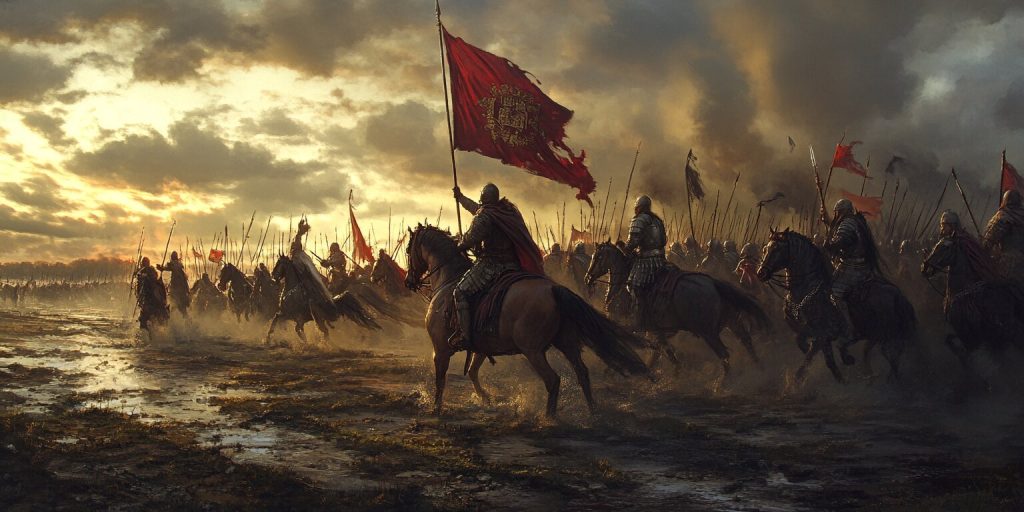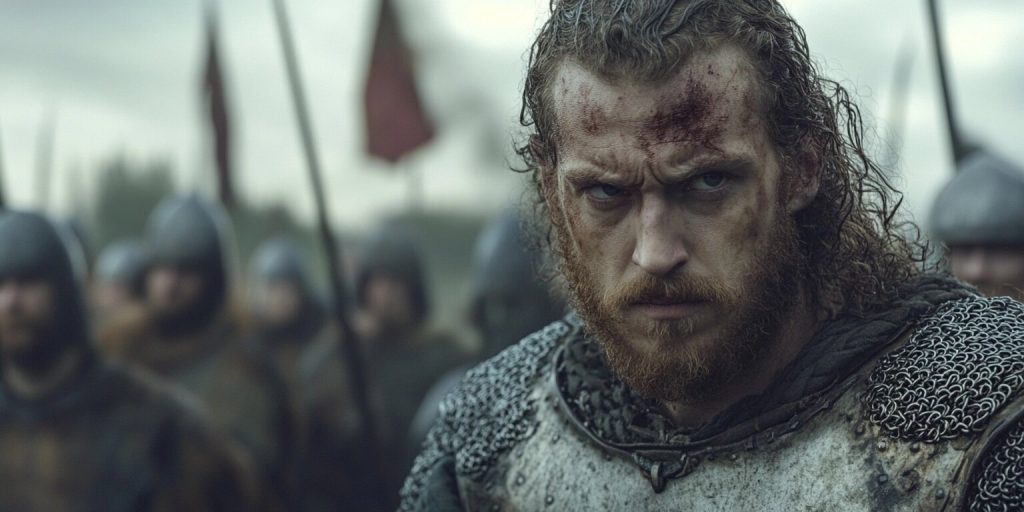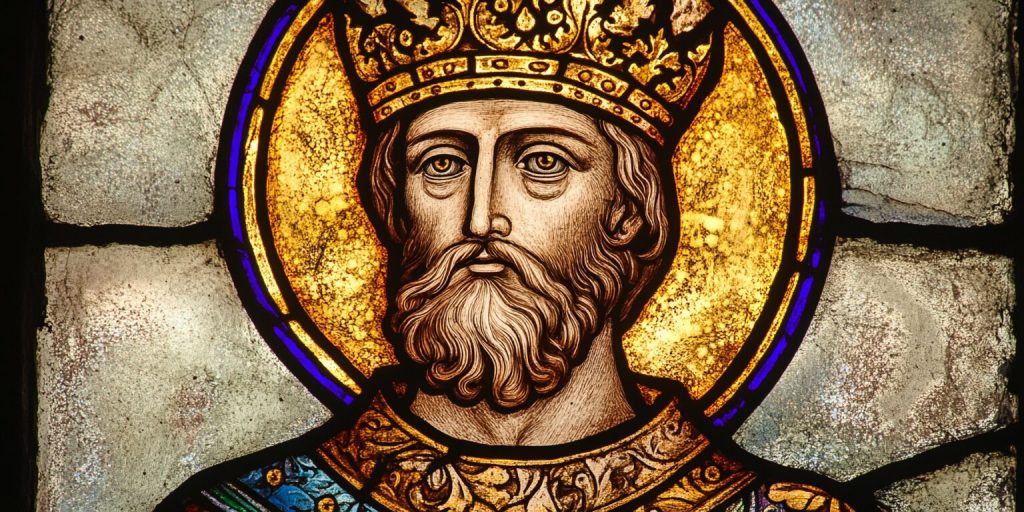Viking Politics, Vikings
Was Athelstan Real?
The figure of Athelstan looms large in the history of medieval England. One is often commended as the first king to unite the diverse Anglo-Saxon kingdoms into what would become England. But was Athelstan real or just a man of myth and legend, similar to other historical figures like those chronicled by Malmesbury? This article will discuss the historical facts related to Athelstan, his life and achievements in the Viking Age, and his depiction in popular culture.
The Historical Athelstan: A Real Person or a Myth?
Was Athelstan a Real Person?
Yes, Athelstan was, without any doubt, a real person. He was born around 894 as the eldest son of King Edward the Elder and the grandson of the legendary Alfred the Great. Athelstan’s reign over Wessex and England as the first King of the English is well represented. He was crowned in 924 after his father’s death, King Edward the Elder, and reigned until he died in 939. He finally brought the diverse Anglo-Saxon and Viking-ruled territories in England under his leadership, paving the way for the future English kings.
Role of Athelstan in the Viking Age
Athelstan was an influential king in England who ruled as king during the Viking Age, and a series of Viking raiding expeditions characterized his reign. He was also crucial in defeating the Vikings and keeping control of lands in the north, and this also encompassed his being in control of the Kingdom of York, which had been annexed into the Norse Kingdom. The defining moment of his reign came with the triumph of the Battle of Brunanburh in 937 against a coalition of Norse, Scots, and Strathclyde Britons; through this victory, he established himself as a great king.
Athelstan and European Politics
Athelstan was not only an important domestic player but also a key player abroad, as far as European politics is concerned. Alliances with certain European kings marked his reign, and his sisters married the rulers of West Francia, the Holy Roman Empire, and other kingdoms, strengthening ties with the Saxons and beyond. The influence that Athelstan wielded went far beyond the borders of England, making him one of the most powerful rulers of his time.
The Legacy of Athelstan: Uniting the Kingdoms
Athelstan: The First King of England
Athelstan is considered the first King of England, as he reigned over the first unified Anglo-Saxon kingdom. Before Athelstan, England had been divided into various smaller kingdoms, comprising, amongst others, Wessex, Mercia, and Northumbria. In the process, Athelstan was crowned as the King of Jorvik and Northumbria. He became the ruler of these territories by conquering other aggressive kings like Sihtric of York and Constantine of Scotland. During his rule, he established the foundation for an integral English monarchy that served the country for several hundred years, marking the rise of the English kings.
Athelstan’s Influence on the Church
Athelstan was quite devout in his Christian religion and highly protective of the Church. He built churches and monasteries throughout his kingdom, thus reinforcing the Church’s power. Athelstan’s piety became so great that he was later raised to the status of a model king who laid down the beginnings of the Church’s complete supremacy in English life.
The Battle of Brunanburh: A Defining Moment

One of the greatest victories of Athelstan’s reign came in 937 at Brunanburh, where he defeated the Danes and consolidated his power over the Saxons. Athelstan’s army triumphed untouched, against all odds, over a coalition of Viking, Scottish, and Strathclyde forces. It was such a resounding win that it has since been viewed as one of the most decisive battles in England’s history—one that helped solidify the rule of Athelstan and bring unity to the realm against the Danes.
Athelstan in Popular Culture: Fact and Fiction
Athelstan in the TV Series Vikings
There is quite some interest in the historical figure of Athelstan, all thanks to the character portrayed in the hit TV series Vikings, which highlights the conflict between Saxons and Danes. During intense Saxon and Scandinavian interactions, Athelstan becomes a Christian monk who somehow gets involved with the Vikings, especially with Ragnar Lothbrok. But how much of this is based on real history, and did Athelstan exist?
Athelstan Monk: A Fictional Creation?
The character of Athelstan in Vikings is mostly fictitious. While Athelstan was undoubtedly a devout Christian, there is no historical evidence that he had been a monk who lived among the Vikings. The narrative journey of the series he makes, interactions with Ragnar and King Ecbert, and the dramatic events around his death are entirely made up for entertainment.
Did Floki Kill Athelstan?
In the series, Floki murders Athelstan due to a massive influence on Ragnar, who is of Scandinavian descent and a pagan, contrasting Athelstan’s Christian beliefs. This part of the story is all fabricated. The real Athelstan passed away in 939, likely from natural causes, and history records no Viking killing him.
What Athelstan Really Accomplished
Although the Vikings series takes creative license, the real Athelstan’s accomplishments were no less remarkable. He was the first to be an effective king in uniting the English kingdoms, defeating the Vikings, and laying down the foundation for what would evolve to be the modern nation of England.
Athelstan’s Reign: The Birth of England

The Unification of Wessex and Mercia
Athelstan’s reign marked the unification of Wessex and Mercia, two of the most powerful Anglo-Saxon kingdoms. On the death of his father, Edward the Elder, Athelstan was made the king of the two places, and with this, his power increased, and he further expanded his reach to the rest part of England.
King Athelstan and His Role in the Expansion of the Kingdom
He led the English kingdom in expanding it beyond its former traditional boundaries. His campaigns against the Norse and Welsh lords and the triumph in Brunanburh assured the security of the North and West of England under his sovereignty and made him king of Northumbria and Strathclyde.
The Death of Athelstan and His Legacy
Athelstan died in October 939. He left behind a kingdom on its road to insanity and strength since its founding. The death of Athelstan had put an end to his reign, but not certainly to his eternal glory: the first-ever king to be in control over the whole of England. He was the man who opened the gates for a whole generation of kings, such as King Edmund and King Edgar, whose unwavering work had continued to establish and fortify a unified and settled England.
Conclusion: Was Athelstan Real?
To sum it all up, Athelstan was a fact and quite a remarkable one in the Middle Ages history in England, as he was the first King of the English. The first king to ever unite the various Anglo-Saxon and Viking-controlled lands, he was a very important figure in shaping the future of England as the King of Wessex and later the King of the English. Though popular culture, most notably the TV series Vikings, showed more fiction than fact about him, records indicate a great king, Athelstan—a strong military leader yet a pious Christian. His reign marks the birth of England as a united kingdom, and his legacy as the first King of the English is still recognizable in the annals of England today.
The life and reign of Athelstan formed the cornerstone of the development that would take England from a land of disparate Anglo-Saxon kingdoms to a united English state, providing the foundation for the nation that would eventually evolve over the centuries. His victories against the Vikings, securing alliances, and fostering the Christian Church prove his importance to history as one of the greatest kings.

